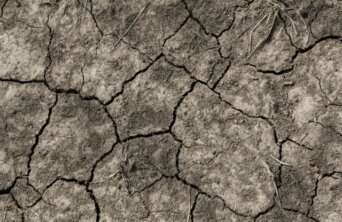- About
- Topics
- Picks
- Audio
- Story
- In-Depth
- Opinion
- News
- Donate
- Signup for our newsletterOur Editors' Best Picks.Send
Read, Debate: Engage.
| topic: | Climate action |
|---|---|
| located: | India |
| editor: | Bindu Gopal Rao |
The Constitution of India guarantees the fundamental rights to equality (Article 14) and life (Article 21) respectively. On April 6, 2024, the Supreme Court of India also said that people had the right to be free from the impact of climate change as much as they had the right to equality and life.
In several rulings, the country's High Courts have also advocated the right to a clean environment as a fundamental right within the ambit of the right to life.
The ruling incidentally occurred as the Court was hearing a case about the critically endangered Great Indian Bustard (GIB), whose dwindling population is affected by overhead transmission lines installed for solar energy projects. This is a clear case of how one environmentally friendly project is causing the downfall of a species that urgently needs protection.
The spotlight, of course, is on the individual’s right to be protected from the adverse effects of climate change. This comes as the country is experiencing a raging, unrelenting heat wave. This human rights acknowledgement is especially important because the country does not yet have legislation for climate change.
With public interest litigations (PILs), a significant focus has been on issues with a negative environmental impact. There is now hope that issues of climate justice will follow soon.
The current discussion on climate issues in India is centred mainly at the Government level, with little conversation with key stakeholders. While the GIB case may have resulted in this statement, it's clear that much more must be done. Even in this case, the Court was lenient, allowing the transmission lines for solar projects to be placed in a way that again puts the birds in jeopardy.
The National Green Tribunal, a government organisation that deals exclusively with environmental matters, often has cases that land in the courts. As people are increasingly knocking on the doors of courts seeking climate justice, the ruling augurs well for the cause of the environment and for people to approach higher courts.
As the country gets set to cast its vote in general elections over the next month, there is also a focus on climate promises in political manifestos. Perhaps this time, there is a way that they can be held accountable for delivering on the same.
Photo by Maud CORREA.

